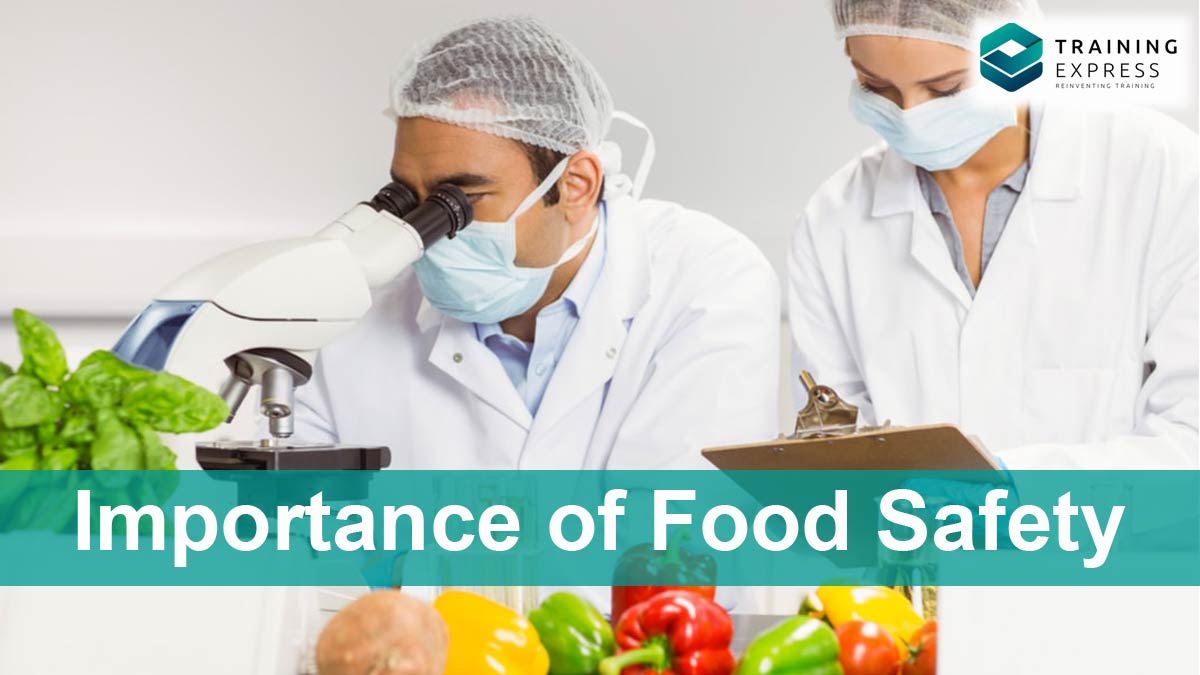
The news media frequently comes up with stories- “Authorities have shut down a food processing plant or restaurant, stating it was contaminated by bacteria linked to the health hazards of several people, health officials said.” So, it’s no wonder what is Food Safety why food safety has become a constant concern all over the world and one of the most important topics to talk about.
Food safety is indeed an integral part of the food industry and you can’t underestimate the importance of food safety. Whether you are a manufacturer, consumer or distributor, everyone is contained by the food chain in the process. Food globalization may have brought the food of different regions to your doorstep, but it also increases the risk of food contamination for consumers. That’s why the discussion about food safety comes in the first place.
Table of Contents
What is food safety?

Illness-causing bacteria, viruses, parasites or chemicals may cause food contamination. And, the food contamination may occur at any stage of its production, processing, distribution, storage, and preparation. Food safety is used as a scientific discipline that describes all the practices which are used to keep the food safe. The term labels the process of handling, preparing, and storing food in ways that prevent food-borne illness.
The Importance of food safety
If you are thinking that food safety is just something for the restaurants and food plants then you are not getting the importance of food safety in a proper manner. It is also important for home cooks to know how to prepare food safely and hygienically at home.
Food safety is important in many ways. The following are some keynotes on the importance of food safety.
- Foods contaminated by bacteria, viruses, and parasites can cause food poisoning. Food poisoning can create serious health hazards.
- Gastroenteritis and dehydration are often caused by food poisoning. Food poisoning may lead to more serious health problems like kidney failure.
- Contaminated food items may not look, taste or smell different than normal food items. Without proper knowledge of food safety, you can’t spot the difference.
- Babies, children, older people, and pregnant women are more vulnerable to food poisoning as they have a weaker immune system.
What Are The Four Principles of Food Safety?
How To Maintain The Food Safety
The main goal of this discussion about food safety is to make the idea of food safety simple for every individual and help people to understand the importance of food safety. Bacteria like Campylobacter and Salmonella and viruses are the common causes in the UK to make people sick from their food at home. You can always avoid the threat of getting sick by sticking to the following basic & safe food handling tips.
Keep your food clean
Keeping your food clean is the basic criteria of food safety. Microbes spread to the food through physical contact, so, keeping your hands and cooking utensils clean is a way to keep your food clean. Wash your hands with soapy water before handling food and rehash the procedure while cooking.
Use clean surface for preparing and chopping food and clean all utensils with hot water and detergents after use. Washing dishcloths, tea towels, and aprons frequently at high temperatures will help you to maintain food safety and keep your food clean.
Keep Raw and Cooked Food Separately
Storing cooked food with raw ingredients leads to food contamination and is a major food safety risk. Illness-causing microbes are most likely to be contained by raw foods like meat, fish, and poultry. They can easily be transferred to ready-to-eat foods by cross-contamination through knives, chopping boards or physical touches. In order to keep your food safe, always keep your raw and cook foods separated. Use different utensils, chopping boards and knives for both cooked and raw foods. And don’t forget to wash your hands after handling raw foods and before handling the cooked ones.
Cook and Heat Food Thoroughly
Cooking food in the core temperature of at least 70 °C for two minutes will kill most of the illness-causing microbes in the food. Cook or heat your food to temperatures until piping hot throughout. You can take the help of a cooking thermometer to check the temperature of the food.
Store Food in The Right Way
Storing food at the refrigerator will slow down the growth of harmful microbes in the food. But, you don’t have to refrigerate all kinds of foods. To store bread, dry foods, and unopened tins and jars, you may use clean, dry and cool shelves. Foods like milk, meat, fish, poultry, and leftover items need to be refrigerated properly. However, it is always recommended to store raw and cooked separately.
Well-Designed kitchen
You might wonder – “why a well-designed kitchen is important to food safety?” It really is. This is the place where your hard work, strategy, passion, and creativity comes into operation to create a meal for your family or customer. In a well-designed kitchen, you can keep everything organized and clean which is the basic requirement of food safety.
Good Waste Management
Pests or vermin are attracted by food waste and it can develop dangerous food poisoning bacteria. That’s why good waste management comes into work. It is also a prerequisite for the good food safety management system. Poor waste management can cause many food safety hazards. It may also grow natural toxins in food.
Key Regulations for Food Safety in the UK

The Food Standard Agency or the FSA is responsible for enforcing food safety laws and ensuring food safety in England, Wales and Northern Ireland. The following are the key legislations that underpin the work of the Food Standard Agency.
- Food Standards Act of 1999
- Food Safety Act 1990 (England and Wales)
- The Food Safety Order 1991 (Northern Ireland)
- General Food Law
- Food Information Regulation (Northern Ireland and Wales)
The main aim of these key regulations is to protect public health in relation to food.
Read more on our blog
- How UK Businesses Can Streamline Compliance Training with an LMS
- 16 Highest Paying Jobs for Special Needs in UK | Earn up to 150K
- What Is PIES In Health And Social Care And Why It Matters?
- 7 Reasons You Should Enrol in a Level 4 Health and Social Care Course Today
- 15 Highest Paying Healthcare Jobs UK in 2026 | Earn up to 200K
- Is day care beneficial for building social skills in kids
- Top 10 Remote Jobs for Beginners Without Experience
- Modern Plumbing: Describe the advanced sanitation and drainage systems.
- How to Prepare Your Workforce for New UK Regulations Coming in 2026
- Food Hygiene Training for Hospitality Staff: Key Compliance Guidelines
- Available Courses
- Animal care10
- Design33
- Training10
- Accounting & Finance Primary51
- Teaching & Academics Primary37
- Teaching23
- Quality Licence Scheme Endorsed181
- Law10
- IT & Software233
- Job Ready Programme52
- Charity & Non-Profit Courses28
- HR & Leadership4
- Administration & Office Skills4
- Mandatory Training36
- Regulated Courses4
- AI & Data Literacy29
- Health and Social Care291
- Personal Development1646
- Food Hygiene119
- Safeguarding81
- Employability288
- First Aid73
- Business Skills298
- Management425
- Child Psychology41
- Health and Safety537
- Hospitality28
- Electronics30
- Construction63
- Career Bundles201
- Marketing39
- Healthcare174
 Food Hygiene
Food Hygiene Health & Safety
Health & Safety Safeguarding
Safeguarding First Aid
First Aid Business Skills
Business Skills Personal Development
Personal Development

